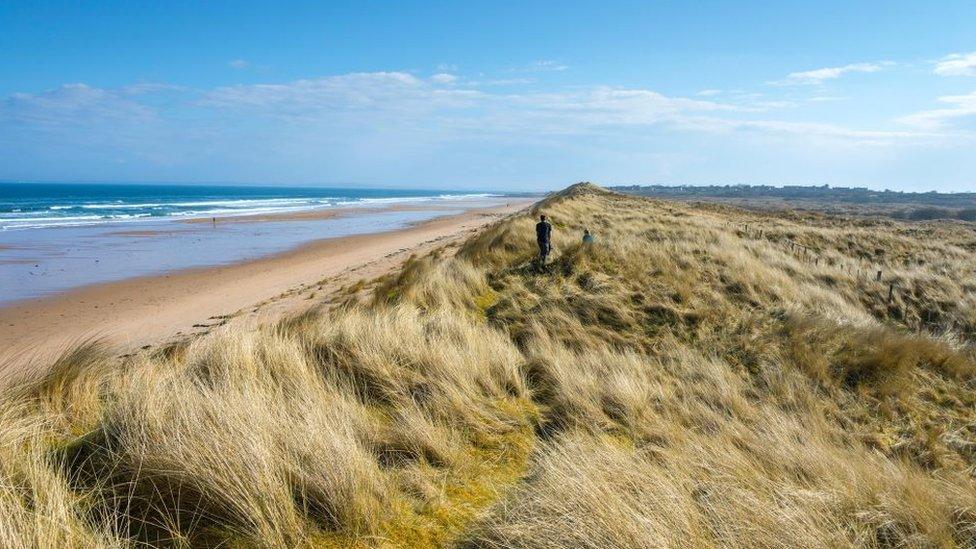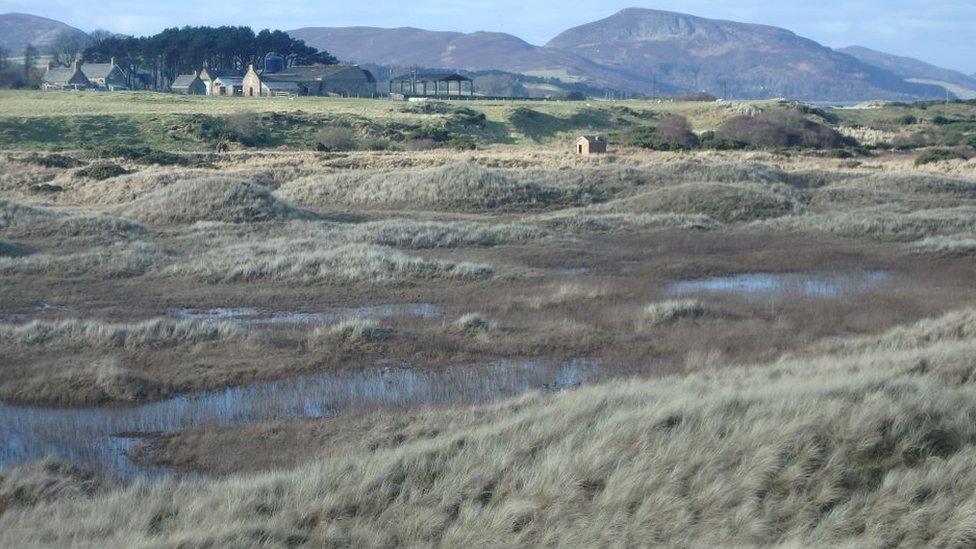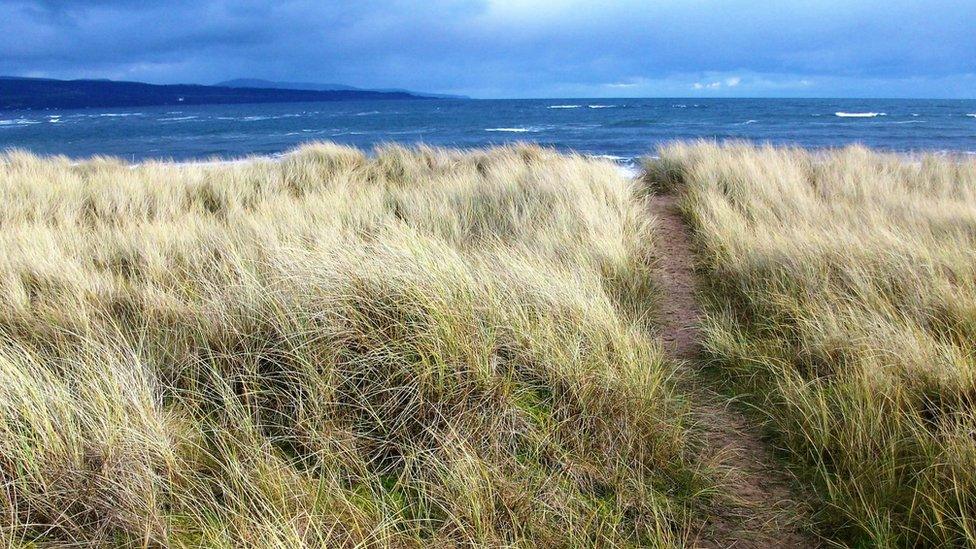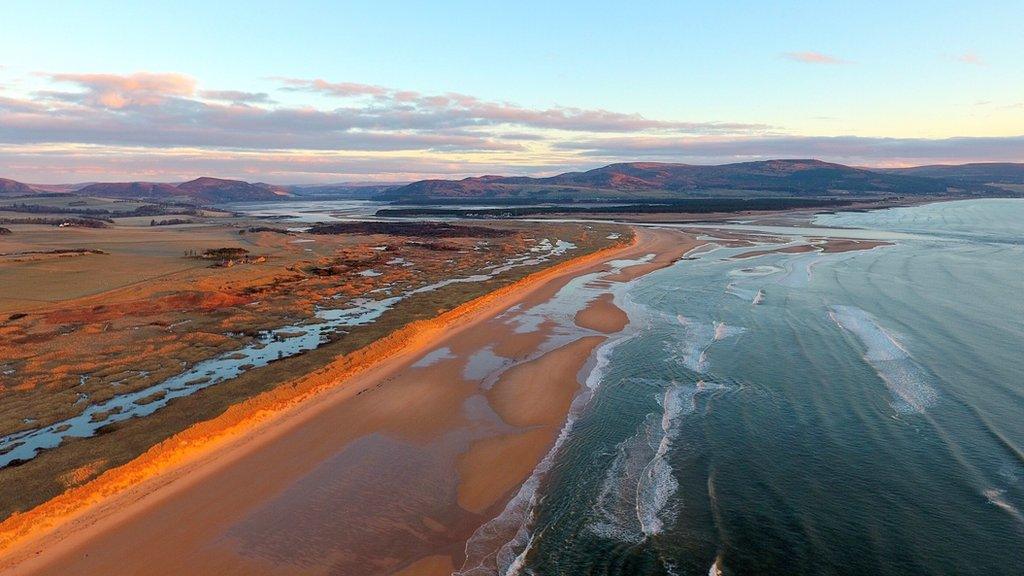Nature agency's concerns over new Coul Links golf course
- Published

The golf course has been proposed for an area of east Sutherland coastline
Scotland's nature agency has raised concerns about plans for a golf course on one of the last coastal dune habitats of its kind in Scotland.
Communities for Coul (C4C) has proposed developing 652 acres (264ha) of grazing pasture, dune heath, scrub and woodland at Coul Links near Embo.
Previous plans for a course were refused planning permission by the Scottish government three years ago.
NatureScot has advised Highland Council of its concerns.
Conservation Coalition, a seven-member group that includes charities Plantlife, Buglife and Scottish Wildlife Trust, and Ramblers Scotland have already opposed the development.
Buglife described the plans as "unacceptable", and said the area in east Sutherland was one of the last of its kind.
More than 700 objections have also been sent to Highland Council.
C4C said it and its advisors were carefully considering NatureScot's submission.
A spokesman said: "Once we have done so, we will respond fully to its contents."

In its submission to Highland Council, the local planning authority, NatureScot said it recognised the potentially large economic benefits for the area that could arise from the golf course.
It also acknowledged C4C's commitment to reduce the footprint of the course and mitigate any impacts on nationally important natural heritage interests.
But it said it was unable to support the proposal because it would result in significant adverse effects on Loch Fleet Site of Special Scientific Interest, a sand dune habitat of national importance.
NatureScot added that a golf course could be progressed in the general location by using a much higher proportion of adjacent agricultural land.

NatureScot said the dune habitat was one of the last of its kind inScotland
The original golf plans for Coul Links were led by US businessman Todd Warnock and secured planning permission from Highland Council, before Scottish ministers called in the planning application for further scrutiny.
Following a public inquiry, the government refused permission.
In their decision in February 2020, Scottish ministers said the plan would have supported economic growth and rural development.
But they agreed with government-appointed planning officials' findings that the golf course would have "significant" effects on rare plant life, wintering and breeding birds and the the dunes themselves.
- Published17 March 2023

- Published2 August 2022
- Published21 February 2020
